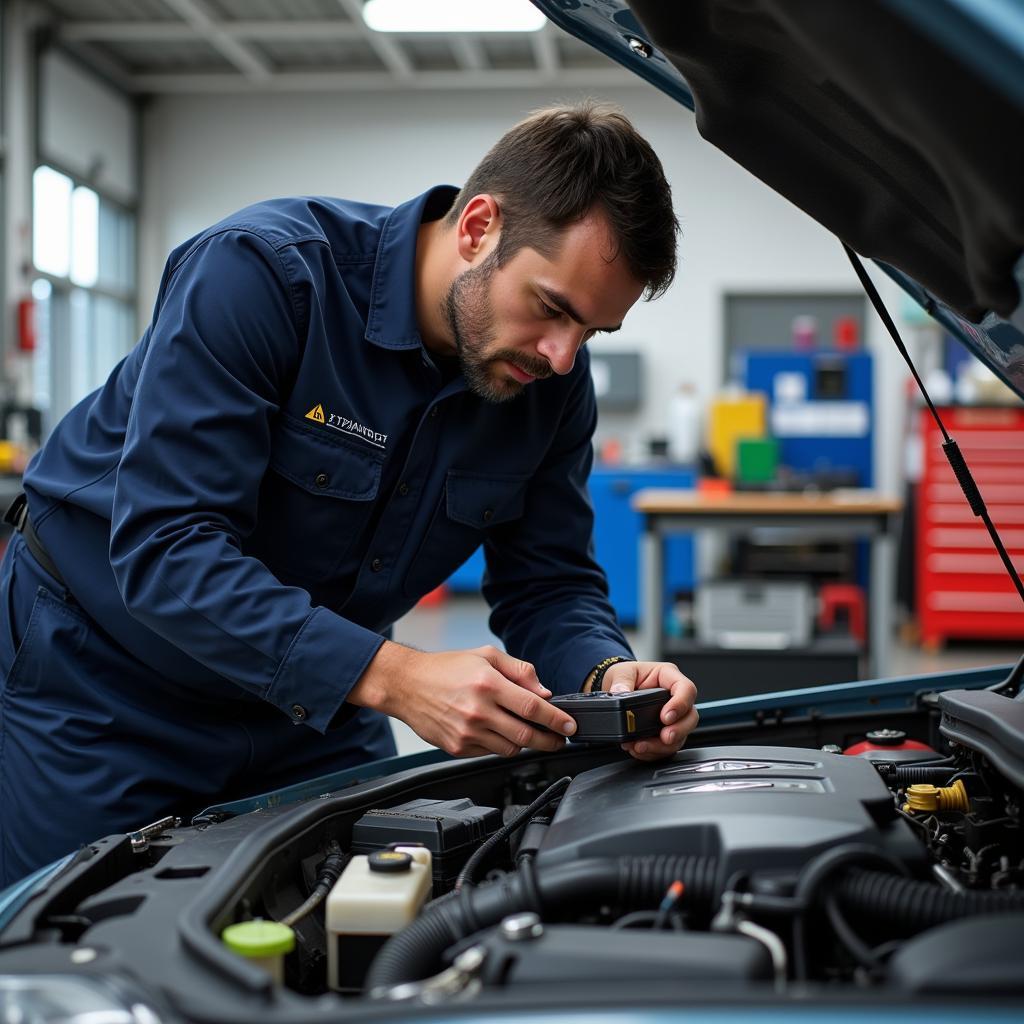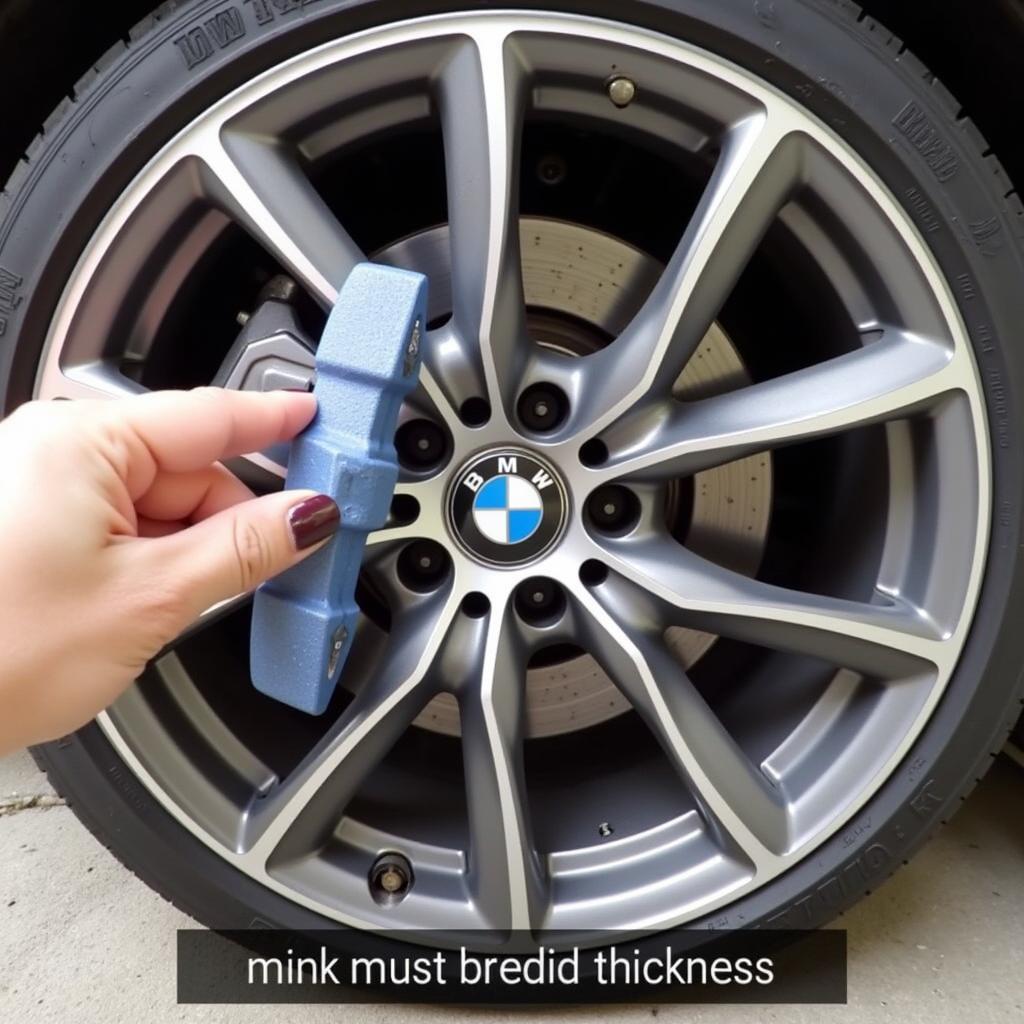A rapid clicking noise when you turn your car key is a common problem, often indicating a dead or dying car battery. However, “car won’t start rapid clicking noise” can also point to other issues like corroded battery terminals, a faulty starter, or even a problem with the ignition system. This article will guide you through diagnosing and resolving the issue, getting you back on the road quickly.
Understanding the Clicking Noise: Why Your Car Won’t Start
That rapid clicking sound you hear is the starter solenoid engaging and disengaging. The solenoid acts as a relay, connecting the battery to the starter motor, which cranks the engine. When your battery is weak, it doesn’t have enough power to fully engage the starter motor, resulting in the clicking sound. However, a clicking sound doesn’t always mean a dead battery. Several other culprits could be at play. Let’s delve into the possibilities.
Common Causes of a Clicking Noise and No Start
Dead or Dying Battery
The most frequent reason for a “car won’t start rapid clicking noise” scenario is a dead or weak battery. Over time, batteries lose their ability to hold a charge. Cold weather can also significantly impact battery performance.
Corroded Battery Terminals
Corrosion on your battery terminals can disrupt the flow of electricity, preventing the starter from receiving the necessary power. Even if your battery is good, corroded terminals can mimic the symptoms of a dead battery.
Faulty Starter Motor
A failing starter motor can also cause a clicking noise. Internal damage within the starter can prevent it from properly engaging and cranking the engine.
Ignition Switch Problems
Although less common, a faulty ignition switch can also prevent the car from starting and cause a clicking noise. The ignition switch controls the flow of power to various components, including the starter.
Diagnosing the Problem: A Step-by-Step Guide
-
Check the Battery Terminals: Inspect the battery terminals for corrosion. If they appear corroded, clean them with a wire brush and a mixture of baking soda and water.
-
Test the Battery Voltage: Use a multimeter to test the battery voltage. A fully charged battery should read around 12.6 volts. A significantly lower reading suggests a weak or dead battery.
-
Try Jump Starting: If the battery voltage is low, try jump-starting the car. If the car starts, this confirms the battery is the problem.
-
Test the Starter: If jump-starting doesn’t work, the starter might be faulty. You can test the starter by having someone turn the key while you tap on the starter motor with a hammer. Sometimes, a stuck starter can be temporarily freed this way. However, this is a temporary fix and indicates a need for starter replacement.
-
Check the Ignition Switch: If the starter and battery are good, the ignition switch might be the culprit. Testing the ignition switch often requires specialized tools and is best left to a professional mechanic.
Solutions and Next Steps
- Replace the Battery: If your battery is dead or weak, replacing it is the most straightforward solution.
- Clean or Replace Battery Terminals: Corroded terminals can often be cleaned, but heavily corroded terminals might need replacement.
- Replace the Starter: A faulty starter will need to be replaced. This is a job that can be done at home with some mechanical knowledge or by a professional mechanic.
- Repair or Replace the Ignition Switch: Ignition switch issues are best addressed by a qualified mechanic.
“A clicking noise when starting your car is never a good sign,” says John Miller, a certified automotive technician with over 20 years of experience. “However, diagnosing the issue correctly is often straightforward and can save you time and money.”
 Mechanic Checking Car Engine
Mechanic Checking Car Engine
Conclusion
A “car won’t start rapid clicking noise” is a frustrating experience, but with a little troubleshooting, you can pinpoint the cause and get your car running again. By following the steps outlined in this article, you can identify whether the problem lies with the battery, starter, or another component. Remember, safety first! If you’re unsure about any step, it’s always best to consult a qualified mechanic.
FAQ
-
Can a car battery be too old to jump-start? Yes, a severely deteriorated battery might not accept a jump-start.
-
How long does a car battery typically last? Car batteries typically last 3-5 years.
-
Can I drive with corroded battery terminals? Driving with corroded terminals can lead to further problems and is not recommended.
-
How much does it cost to replace a car starter? Starter replacement costs vary, but generally range from $200 to $500.
-
Is it safe to tap on the starter motor? While it can sometimes temporarily free a stuck starter, it’s not a long-term solution and can be dangerous if done improperly.
-
Can extreme temperatures affect my car battery? Yes, both extreme heat and cold can negatively impact battery performance.
-
What should I do if my car still won’t start after trying these solutions? If you’ve tried these solutions and your car still won’t start, it’s best to have it towed to a qualified mechanic for further diagnosis.

